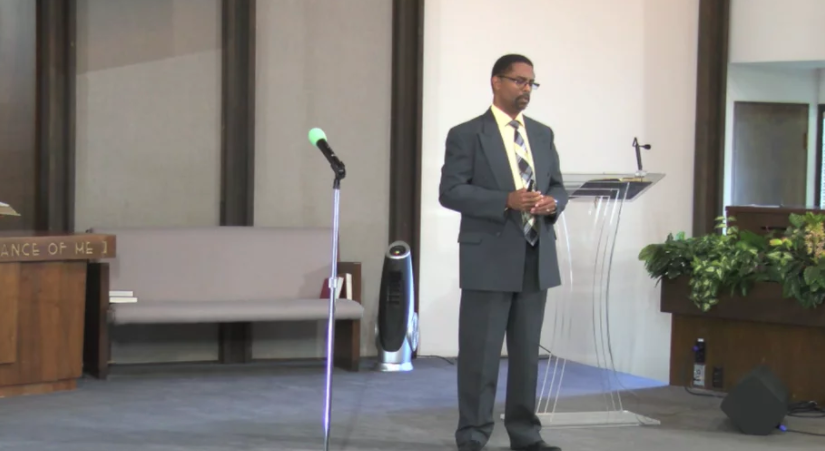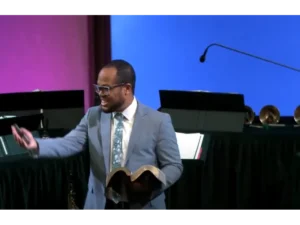On Sabbath we continued the Lost and Found series with a look at the third parable in Jesus’s
“Lost” trilogy—The Prodigal Son. Rewind to Luke 15:11-24. We know the story is about
relationships when Jesus begins, “A man had two sons.” In eastern lands no relationship is
stronger than that of fathers and sons. But the request of the younger son in verse 12 for his
share of the inheritance shows that this relationship between father and son is dramatically
fractured.
To ask for your inheritance while the father still lived was the same as saying, “I wish you were
dead.” The older brother would have acted as mediator in this situation, but his silence indicates
another serious fracture in the relationship between he and his younger brother, as well as with
the father. Likewise, when the church is silent in the face of sin there’s something broken in
its relationship with God and man.
So the story sets up with the selfishness of the younger son, the silence of the older son, and the
suffering of the Father.
To the shock of the listeners, the father grants the younger son’s request and the boy
immediately converts his assets into cash and heads for “the far country.” There, he squanders
his inheritance on wild living until a famine comes and wipes him out financially.
But despite the famine and lack of food, the boy wouldn’t go home for two reasons: 1) enduring
his brother’s scorn; 2) facing the village. He feared ridicule and censor even more than his
circumstances. He let his fear of the father’s house keep him from the love of the father’s
heart. This still happens today! People who have left the church are so afraid of the reception
they will get from church members, they stay away and cut themselves off from the love of God
they so desperately want.
The young man finally hit rock bottom when he sold himself to a citizen of that country and was
given a job feeding swine. In verses 17-19 he comes up with a plan to get back into his father’s
good graces. He figured that the only way to be restored to the family and community was to pay
back the money he had lost. His plan is to seek job training as a craftsman so he can join the
work force, save his money, and eventually repay what he lost. But he needs his father’s backing
so he crafts a humble speech in the hopes of manipulating his father into giving the
recommendation.
Like all legalists, the prodigal doesn’t understand the nature of his sin. He thinks the issue is the
lost money. But it’s the father’s broken heart. The problem is not broken rules, but the
Father’s broken heart and a broken relationship. And there is no manipulating the Father with
a bunch of deeds that are supposed to impress him! “It is by grace you have been saved, not by
works, so no one can boast.” (Eph. 2:8)
But the prodigal didn’t want grace. He asks to be a misthios, a “hired hand.” He wants to earn a
wage so he can pay his own debt! And this is why legalists never have the peace and security of
their salvation. Because they don’t know the heart of the father, they settle for being hired
servants instead of being sons and daughters of the father. When we try to buy our father’s
love, we reject an authentic son-ship that entitles us to everything the Father has.
In verse 20, the prodigal returns home. The journey is filled with dread. As soon as the village
learns that he lost his money among the Gentiles the Kezazah (or “the cutting off”) ceremony
would begin. Children would mock him, and the village elders would smash an earthen vessel on
the ground in front of him to symbolize the broken relationship between he and the village. He
would be made to sit outside the gate of the family home before being allowed to even see his
father. His mother might come to the ceremony, but the father would remain aloof and angry in
the house.
But this father breaks all the rules of eastern patriarchy. He sees the son while he’s still “a long
way off.” The boy’s not clean. He’s not even repentant. He doesn’t have his theology straight: he
thinks God is an angry judge instead of a compassionate father. But none of that keeps the father
where he is. Knowing what his son will face in the village, the father “races” to his son, exposing
his legs and distracts the attention of the village elders away from the boy. In running he takes
upon himself the shame and humiliation due the prodigal.
The father’s heart causes him to leave the comfort and security of his home and humiliate himself
before the village. And this is what God did in Christ for you and me. For you and me Jesus
“endured the cross, scorning its shame” (Heb. 12:2).
The boy’s confession in verse 21 is now heartfelt and true because he is overwhelmed by the
father’s costly love. The goodness of the Father’s heart leads to genuine repentance and
prodigals accept being found. After this costly demonstration, no one in the village can reject or
despise him.
The love of the father was always there, but the boy never saw it. But now that love becomes
visible and for the first time he is able to understand it. The cross is that visible demonstration
of the heart of God that melts our hearts and enables us to understand His. He wasn’t
content just to tell us He loved us. He knew we wouldn’t understand so the Word became flesh
and dwelt among us and died in our place so we could come home and understand the Father’s
heart.
Why so costly? Because the value of what is lost determines the intensity of the effort to
restore and reclaim it. You are worth that much to God! Even in the “far country.” And nothing
brings greater joy to the Father’s heart than bringing His lost children home.
This is our mission. (See 2 Cor. 5:19, 20.) God wants to make His heart known to his prodigals
both inside and outside the church. It is out of love for being searched for, found, and restored to
relationship with God that we in turn search for, find, and restore others to the Father’s heart. He
ran for us, now it is our turn to run for Him.—Pastor Randy





